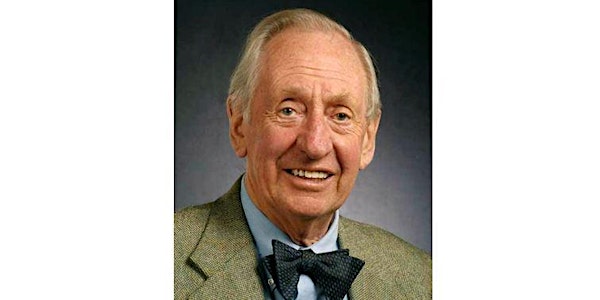
Severe Hypoxia: lessons from the summit of Mount Everest
Date and time
Location
Flentje Lecture Theatre, University of Adelaide
North Terrace Adelaide, SA 5005 AustraliaDescription
Executive Dean's Lecture Series:
'Severe Hypoxia: lessons from the summit of Mount Everest
Wintering just south of Mount Everest with the Silver Hut expedition, led by Sir Edmund Hilary in 1960, sparked the beginning of a long interest in high-altitude medicine and physiology for Professor John West. Professor West then led the 1981 American Medical Research Expedition to Everest during which the first physiological measurements on the summit were made.
Hear from Professor West as he addresses how it is possible for humans to survive in the extreme oxygen deprivation of these great altitudes which are right at the limit of human tolerance. He will also highlight his role in high altitude physiological measurements since the 1960's and how the research has shaped today's medical practices.
About Professor John West
John West graduated with a medical degree in 1951 from the University of Adelaide. He spent 15 years in London, mainly at the Royal Postgraduate Medical School, Hammersmith Hospital. Further to the 1960 Silver Hut expedition his interest in the field of high altitude medicine and physiology continued.
John West took a period of sabbatical leave at the NASA Ames Research Center in 1967-1968. During this time he submitted a proposal and gained long term funding from NASA to study pulmonary function in astronauts.
He joined the faculty of the University of California San Diego in 1969 and has been there since. He was in charge of the physiology course for first year medical students at UCSD for 35 years and his little red book Respiratory Physiology: The Essentials has been translated into 13 languages He also has a strong interest in the history of medicine and has written several books on the subject. His monograph High Life is a standard history of high altitude physiology and medicine. He has developed an archival collection of material in high-altitude medicine and physiology for the special archival library at the University of California, San Diego.
Dr. West has had many honors including president of the American Physiological Society, foreign member of the Russian Academy of Sciences, founding fellow of the American Institute for Medical and Biological Engineering, honorary doctorates from the universities of Barcelona, Ferrara and Athens, fellow of the American Academy of Arts and Sciences, and member of the Institute of Medicine of the National Academy of Sciences.